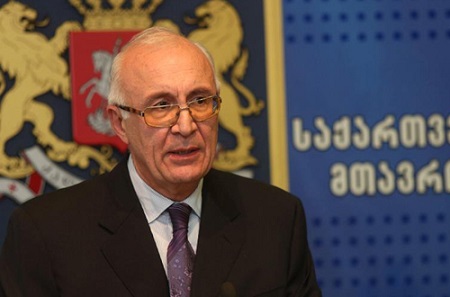Georgia-Russia envoys will meet next week

Georgian and Russian officials will finally convene after plans to meet were postponed twice.
Georgia’s Special Representative for Relations with Russia Zurab Abashidze confirmed he will meet with Russian Deputy Minister of Foreign Affairs Grigory Karasin next week.
The pair were due to meet in March, first on March 4 then again on March 14 but Karasin demanded both planned meetings were postponed. The reasons behind the postponements are unknown but on both occasions, were initiated by the Russian side.
Before entering a Government meeting today, Abashidze said the envoy’s would discuss a range of topics and potentially help resolve some outstanding issues.
"We do not have diplomatic relations with Russia so within the frames of this bilateral, informal dialogue we will discuss number of specific, practical issues. Many such topics have accumulated and we hope that the will be resolved as it’s possible,” he noted.
More specifically, Abashidze said he and Karasin would discuss economic, trade and business relations, as well as several issues of humanitarian importance, "which need to be promptly resolved”.
"Therefore I think this meeting will be necessary and timely,” Abashidze said.
Speaking to journalists before today’s Government meeting, Abashidze commented on a statement by the director of the Russian Federal Security Service (FSB) , Alexander Bortnikov, who allegedly said Russian Special Forces had stopped the threat of terrorist attacks on the Sochi Olympics together with foreign colleagues, including Georgians.
Abashidze explained the form of cooperation that existed between Georgia and Russia was in place only to ensure the safety of the Olympic Games and noted that "even more needed to be done” to develop the bilateral relationship.
"I have said before and I will repeat that we had cooperation in three directions. First of all, our Olympic Committee had constant contact with the organizers. Every detail was reviewed by our team about the arrival in Sochi. This also included a security regime.
"Secondly, we sent our consular officer [to Sochi]. The Ministry of Foreign Affairs sent a special consulate officer from Moscow to Sochi, who assisted our athletes throughout the whole Olympic Games and was in constant contact with the local organizers.
"The third was that during the Olympics, additional security measures in the framework of the law was undertaken on Georgian territory, including airports and border lines,” Abashidze said.
Asked whether taking additional security measures during the Olympic Games was a unilateral decision or made following an information exchange with the FSB, Abashidze answered that "nothing was hidden”.
"There was some form of cooperation, as I said when our Olympic Committees were discussing Georgia’s participation, some kind of security measures needed to be taken. Then our consulate representative arrived there. Therefore, [the cooperation between Georgia and Russia] was not small, but even more needs to be done,” he noted.
 Tweet
Tweet  Share
Share